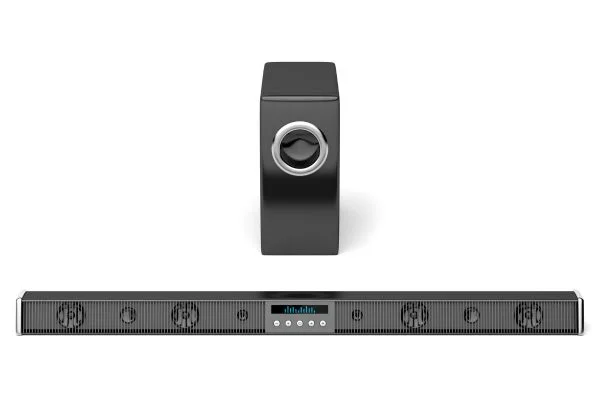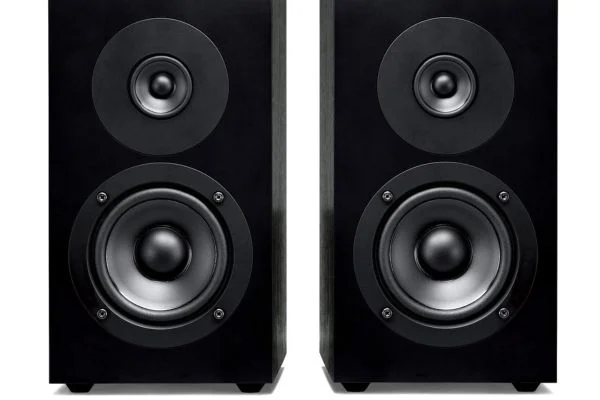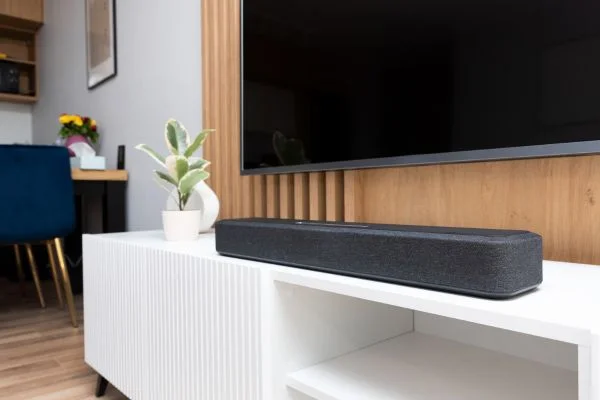If you are an audiophile, you might have heard of passive soundbars. Unlike active soundbars, these are less popular and often overlooked by most. But if you want to elevate your audio experience to the next level, you cannot ignore passive soundbars. This blog will discuss what is a passive soundbar and why you should consider owning one.
What is a Passive Soundbar?

A passive soundbar is a set of speakers combined in a single long bar-shaped unit. Unlike an active soundbar, a passive soundbar has no built-in amplifier. This means the soundbar must be paired with a separate receiver or amplifier to power the speakers. Depending on the model, a passive soundbar may have two to five channels, and it can operate with a wide range of amplifiers, including AV receivers and stereo amplifiers.
Read more about How To Build A Passive Soundbar?
Advantages of a Passive Soundbar
1. Affordable
One of the main advantages of a passive soundbar is its affordability. Passive soundbars are significantly cheaper than active soundbars because they do not have a built-in amplifier. This means you can still get high-quality sound for your home theatre system without spending a fortune.
2. Easy to Install
Passive soundbars are very easy to install because they don’t require any additional power or special wiring. It would be best to connect the soundbar to your TV or receiver using a speaker wire, and you’re ready to go. This makes it ideal for people who want to upgrade their home entertainment system without hiring a professional installer.
3. Customizable
Another advantage of a passive soundbar is its customisation. You can choose the suitable amplifier since it doesn’t have one built in. This means you can upgrade your amplifier to improve sound quality without buying a new soundbar.
4. Better Sound Quality
Active soundbars are convenient because they include a built-in amplifier, but passive soundbars provide better sound quality. The amplifier is separate, so it can be larger and more powerful than the one you would find in an active soundbar. You can achieve higher volume levels and better bass performance, creating a more immersive home theatre experience.
5. Better Compatibility
Because passive soundbars do not have a built-in amplifier, they are more compatible with a wider range of devices. They’re an excellent alternative for upgrading your home theatre system if you don’t want to buy a new TV or receiver.
Read more about How To Reset Onn Soundbar?
Do Passive Speakers Sound Better?
The debate surrounding passive and active speakers’ sound quality is subjective and dependent on various factors. Both types of speakers have their advantages and considerations.

Passive speakers need an external amplifier, while active speakers have built-in amps.
Consider these factors when evaluating passive speakers:
1. Flexibility: You can pair passive speakers with different amplifiers, making them more versatile. This allows you to tailor the sound and upgrade individual components to your preferences.
2. Amplifier Choice: With passive speakers, you can choose from various amplifiers, including high-end models.
3. Sound Signature: Passive speakers typically provide a more neutral and transparent sound reproduction. This is because the built-in amplification does not influence the sound, and you have more control over the amplifier selection to match your desired sound signature.
4. Separation of Components: By separating the amplifier and speaker components, passive systems can reduce electrical interference and maintain cleaner audio signals.
5. Cost: Passive speakers are more cost-effective than active speakers, as you are not paying for the built-in amplification.
Read more about Can You Use Blusound Amp To Run Passive Soundbar?
However, it is worth noting that active speakers also have their advantages:
- Simplified Setup: Active speakers are more straightforward since you do not need to worry about matching amplifiers and speakers. Those who want a plug-and-play solution can use this.
- Integration and Optimization: Active speakers are designed with amplification tailored explicitly to the speaker components, optimizing the overall performance. This can result in excellent sound quality and efficient power utilization.
- Compact Design: Active speakers can have a more compact form factor since the amplification is integrated, making them suitable for limited space.
Passive or active speakers’ sound quality depends on several things, including the quality of the components, the design, and how you use them.
To make an informed decision, you should listen to different speakers and consider factors like room acoustics, amplifier quality, and overall audio setup.
Bottom Line
Now you know, What Is A Passive Soundbar. Consider a passive soundbar if you are looking for a high-quality audio experience surpassing most soundbars on the market. With the freedom to choose your amplifier, you get more control over the sound quality and can upgrade your system anytime. The flexibility and adjustability features will ensure you get the most out of your listening experience. So invest in a passive soundbar that perfectly suits your needs today!



